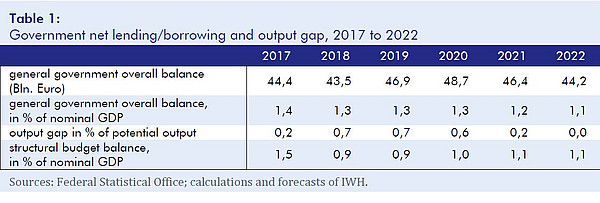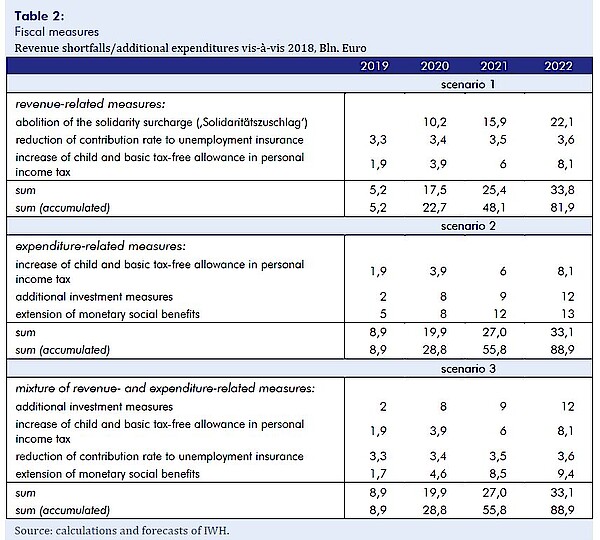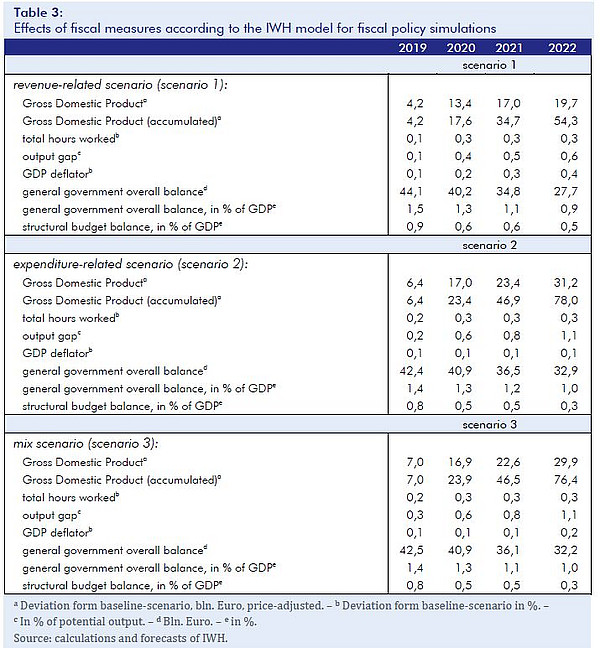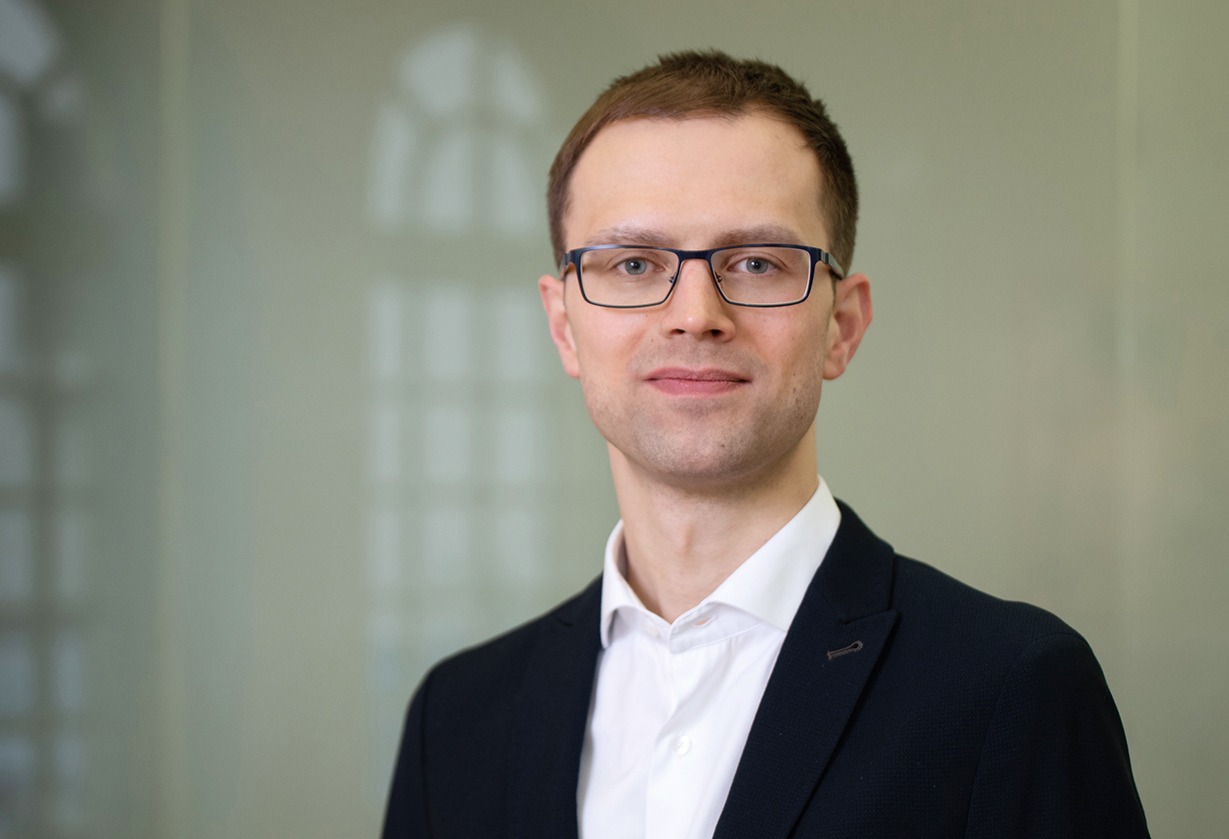The medium-term economic development in Germany from 2017 to 2022 and opportunities for fiscal policies of a new federal government
The German economy is in a strong cyclical upswing.* The cyclical position contributes to a surplus in the balance of the general government that is likely to rise to almost 45 billion euros in 2017. If laws stayed as they are and the fiscal stance were, from 2019 onward, neutral, this surplus would as well be more or less constant in the coming years (see Table 1). The structural balance, i.e. the balance that is cyclically and for one-off effects adjusted, would, starting from about 30 billion euros in 2018, increase even further.
* See IWH Press Release39/2017 „Cyclical upswing in Germany and in the world“ of December 14, 2017.

This gives a future government considerable scope for lowering revenues or expanding spending. Using the IWH model for simulating effects of fiscal policy, we simulate three scenarios: one with a programme that lowers revenues, one with a spending programme, and a third that is a combination of the former two programmes (see Table 2).

Since coming to a political decision about such a bunch of policy measures and thereafter implementing them will take some time, the fiscal stimuli are assumed to be quite limited in 2019. In 2022, however, they are as high as 33 or 34 billion euros. The simulations show that additional GDP is higher if caused by the spending programme than in the case of lower revenues (see Table 3).

Thus in the present cyclical situation a revenue programme is more appealing since its pro-cyclical effects are smaller than those of a spending programme. A further aspect in favour of a revenue programme is that the share of general government revenues in GDP has increased in recent time. Reversing this trend makes sense. Lowering the tax- and social security-burden on labour could raise potential output and contribute to stabilising the financial position of the state in the long run, preserving its fiscal scope for future times.
Long Version:
Bershadskyy, Dmitri; Brautzsch, Hans-Ulrich; Drygalla, Andrej; Heinisch, Katja; Holtemöller, Oliver; Lindner, Axel; Wieschemeyer, Matthias; Zeddies, Götz: Die mittelfristige wirtschaftliche Entwicklung in Deutschland für die Jahre 2017 bis 2022 und finanzpolitische Optionen einer neuen Bundesregierung. IWH-Pressemitteilung 40/2017 (Langfassung).
Whom to contact
For Researchers

Vice President Department Head
If you have any further questions please contact me.
+49 345 7753-800 Request per E-MailFor Journalists

Internal and External Communications
If you have any further questions please contact me.
+49 345 7753-832 Request per E-MailIWH list of experts
The IWH list of experts provides an overview of IWH research topics and the researchers and scientists in these areas. The relevant experts for the topics listed there can be reached for questions as usual through the IWH Press Office.



